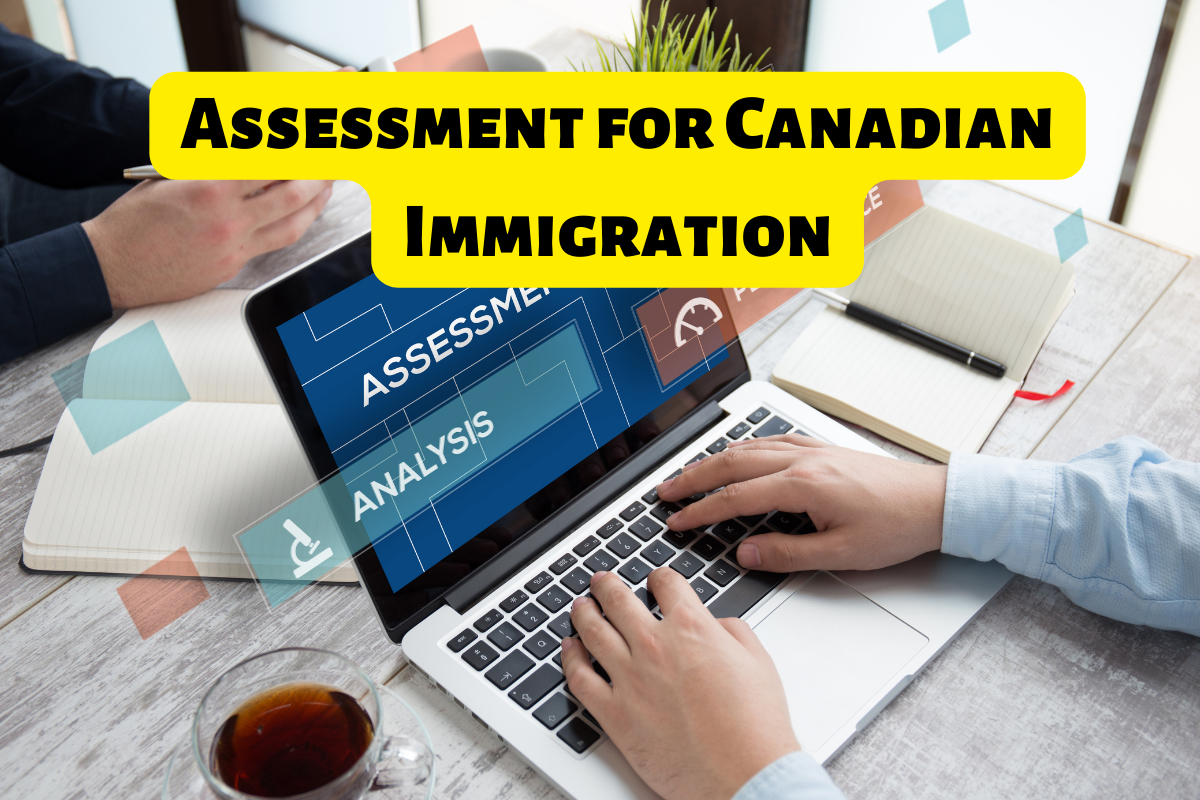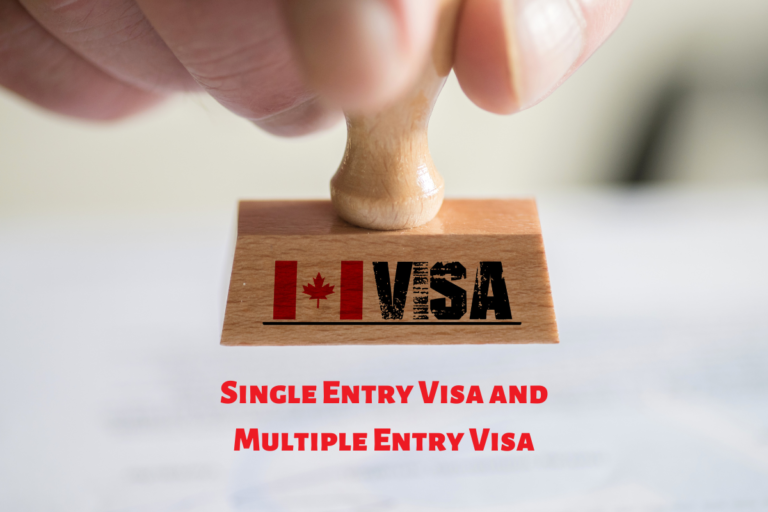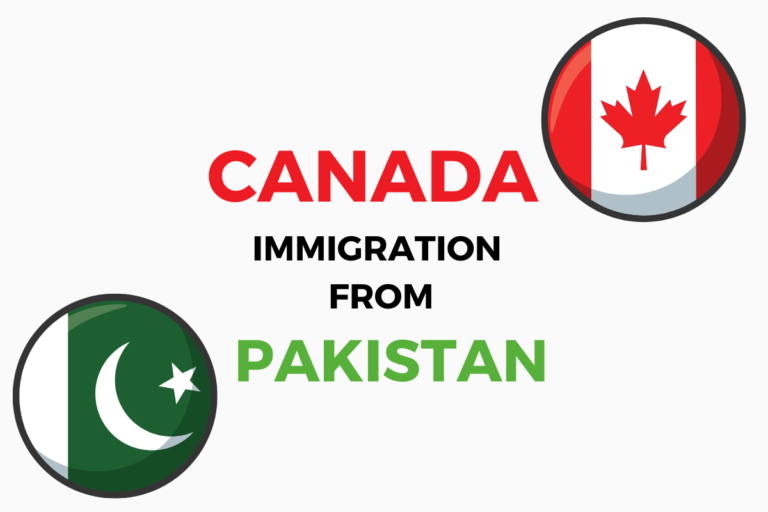What is the assessment for Canadian immigration?
Profile Assessment for Canada Immigration
I can provide you with general information on the profile assessment process for Canadian immigration.
To immigrate to Canada, you must meet the eligibility requirements under one of the country’s immigration programs. There are several programs available for different categories of immigrants, including skilled workers, business people, students, and refugees.
To assess your eligibility, you will need to provide information about your education, work experience, language proficiency, age, and other factors. The Canadian government uses a points-based system to evaluate your profile based on these factors. This system is known as the Comprehensive Ranking System (CRS).
The CRS assigns points based on various factors, such as age, education, language skills, work experience, and adaptability. The higher your CRS score, the better your chances of being invited to apply for permanent residency in Canada.
Once you have a CRS score, you can submit an Express Entry profile to the Canadian government. The Express Entry system manages the applications for the Federal Skilled Worker Program, the Federal Skilled Trades Program, and the Canadian Experience Class.
If you are eligible, you may receive an Invitation to Apply (ITA) for permanent residency in Canada. You will then need to submit a complete application and undergo further processing, including medical and security checks.
Overall, the profile assessment process for Canadian immigration is complex and requires careful attention to detail. It is essential to ensure that you provide accurate information and meet all the eligibility criteria to increase your chances of success.
What is Profile Assessment or Profile Evaluation?
Profile assessment or profile evaluation is a process of analyzing an individual’s background, skills, and qualifications to determine their suitability for a particular purpose. In the context of immigration, profile assessment is the process of evaluating an applicant’s profile to determine their eligibility for a particular immigration program.
The profile assessment process involves reviewing an individual’s education, work experience, language proficiency, age, and other relevant factors. Depending on the immigration program, specific criteria and requirements must be met, and points may be assigned based on these factors.
The assessment is usually conducted using a points-based system to evaluate the applicant’s profile against the program’s eligibility criteria. The applicant’s score will determine their rank among other applicants in the pool, and the highest-ranking applicants may receive an invitation to apply for immigration.
Profile assessment is an essential part of the immigration process, and it helps immigration authorities to determine which applicants are most likely to succeed in Canada. It is important to note that the profile assessment process can be complex and may require the assistance of an immigration consultant or lawyer to ensure that all necessary information is provided accurately and thoroughly.
What are the Factors for Profile Evaluation?
The factors for profile evaluation may vary depending on the specific immigration program, but generally, the following factors are considered during the profile evaluation process:
- Age: Age is a significant factor in the profile evaluation process. Points are assigned based on the age of the applicant, with younger applicants receiving more points.
- Education: The level of education is an important factor in the profile evaluation process. Points are assigned based on the level of education completed, with higher levels of education receiving more points.
- Work Experience: Work experience is another important factor in the profile evaluation process. Points are assigned based on the number of years of work experience, the type of work experience, and whether the work experience is in a skilled occupation.
- Language Proficiency: Language proficiency is a critical factor in the profile evaluation process. Points are assigned based on the applicant’s ability to speak, read, write, and understand one or both official languages of Canada (English and French).
- Adaptability: Adaptability refers to an applicant’s ability to integrate into Canadian society. Points are assigned based on factors such as previous work or study experience in Canada, a job offer in Canada, or having a family member who is a Canadian citizen or permanent resident.
- Financial Resources: Some immigration programs may require applicants to provide evidence of financial resources to support themselves and their family members in Canada.
Overall, the factors for profile evaluation aim to assess an applicant’s potential to contribute to Canada’s economy and society, as well as their ability to adapt to life in Canada. It is essential to provide accurate and complete information during the profile evaluation process to ensure that the assessment is fair and accurate.
What is ECA?
ECA stands for Educational Credential Assessment. It is a process that evaluates the educational credentials of international students or foreign workers who want to apply for immigration, education, or employment opportunities in Canada. An ECA is required to ensure that the educational qualifications obtained outside Canada are equivalent to Canadian educational standards.
The ECA process involves an independent organization or agency assessing the educational credentials of the applicant and providing a report on the educational equivalency of the foreign degree or diploma to a Canadian educational credential. The report includes information on the type of degree, the duration of the program, the institution that awarded the degree, and a comparison of the foreign degree to a similar Canadian degree.
An ECA report is usually required for immigration purposes, such as applying for the Federal Skilled Worker Program, Canadian Experience Class, or the Federal Skilled Trades Program. It is also required for some provincial nomination programs and for educational or employment purposes.
It is important to note that not all educational credentials require an ECA. For example, degrees or diplomas earned from recognized Canadian institutions do not require an ECA. However, for degrees or diplomas earned from outside of Canada, an ECA is often required as proof of educational credentials and equivalency to Canadian standards.
Who performs the ECA?
Educational Credential Assessments (ECAs) are performed by designated organizations or agencies authorized by the Canadian government. The designated organizations or agencies assess the educational credentials of international students or foreign workers who want to apply for immigration, education, or employment opportunities in Canada.
There are several designated organizations or agencies authorized to perform ECAs in Canada. These organizations or agencies include:
- Comparative Education Service (CES) of the University of Toronto School of Continuing Studies
- International Credential Assessment Service of Canada (ICAS)
- World Education Services (WES)
- International Qualifications Assessment Service (IQAS)
- Medical Council of Canada (MCC)
Each of these designated organizations or agencies has specific requirements for submitting educational documents, processing times, and fees. It is important to review the requirements of each designated organization or agency before selecting one to perform an ECA.
ECAs are a critical component of the Canadian immigration process, and it is essential to obtain an ECA report to demonstrate that educational credentials obtained outside Canada are equivalent to Canadian educational standards.
Applying with a Spouse or Common-law Partner
When applying for immigration to Canada, individuals may choose to apply with their spouse or common-law partner. This option is available for most immigration programs, and it provides several advantages.
One of the primary advantages of applying with a spouse or common-law partner is that it can increase an applicant’s overall points score in the Express Entry system. The Comprehensive Ranking System (CRS) assigns points for factors such as age, education, work experience, language proficiency, and adaptability. If both partners are eligible for immigration, they can combine their scores, which may increase their chances of being selected for an invitation to apply.
Applying with a spouse or common-law partner can also provide additional support during the immigration process. For example, one partner may be able to provide financial support, while the other partner may have a job offer or higher language proficiency.
However, it is important to note that applying with a spouse or common-law partner can also have some drawbacks. For example, if one partner has a criminal record or a medical condition that may make them inadmissible to Canada, it could negatively impact the entire application.
When applying with a spouse or common-law partner, both partners must meet the eligibility requirements of the specific immigration program they are applying for. They must also provide all necessary documents and information to support their application, including proof of their relationship.
Overall, applying with a spouse or common-law partner can provide several benefits, but it is important to carefully consider the eligibility requirements and potential drawbacks before making a decision. It is also recommended to seek the advice of an immigration consultant or lawyer to ensure that all aspects of the application process are properly addressed.
What are the Minimum Points Required for Canada Express Entry 2023?
The minimum points required for Canada Express Entry in 2023 will depend on various factors such as the number of applicants, the CRS score distribution, and the number of invitations issued by the Canadian government.
The minimum CRS score required to receive an invitation to apply (ITA) in recent Express Entry draws has varied between 440 and 500 CRS points. It is expected that the minimum CRS score required in 2023 will remain in a similar range.
It is important to note that the CRS score is based on various factors such as age, education, work experience, language proficiency, and adaptability. Therefore, applicants who score higher in these factors are more likely to receive an ITA.
Additionally, the Canadian government adjusts the minimum CRS score requirement in response to the number of candidates in the Express Entry pool and the number of invitations issued in each draw. Therefore, it is recommended that applicants maintain high CRS scores and keep track of the latest Express Entry draws to determine their chances of receiving an invitation to apply.
What are the Benefits of Immigrating to Canada?
There are many benefits to immigrating to Canada. Here are some of the most significant ones:
- Strong economy: Canada has a strong and stable economy with low unemployment rates, making it an attractive destination for skilled workers and entrepreneurs.
- High standard of living: Canada is consistently ranked among the top countries in the world for quality of life, healthcare, and education.
- Welcoming society: Canada is known for its multiculturalism, diversity, and inclusiveness, making it a welcoming and safe place to live.
- Access to education: Canada has a world-class education system, with many top-ranked universities and colleges, as well as opportunities for research and innovation.
- Universal healthcare: Canada has a publicly funded healthcare system that provides universal access to medical care for all residents.
- Social benefits: Canada offers a range of social benefits, such as employment insurance, parental leave, and public pensions, to support its residents.
- Immigration pathways: Canada has a variety of immigration programs designed to attract skilled workers, entrepreneurs, investors, and family members, providing multiple pathways for individuals to immigrate to Canada.
- Citizenship: After a few years of living in Canada as a permanent resident, individuals can apply for Canadian citizenship, which provides additional benefits such as the right to vote, the ability to travel with a Canadian passport, and access to government programs and services.
Overall, Canada is an attractive destination for those seeking a high standard of living, economic opportunities, and a welcoming and inclusive society.




